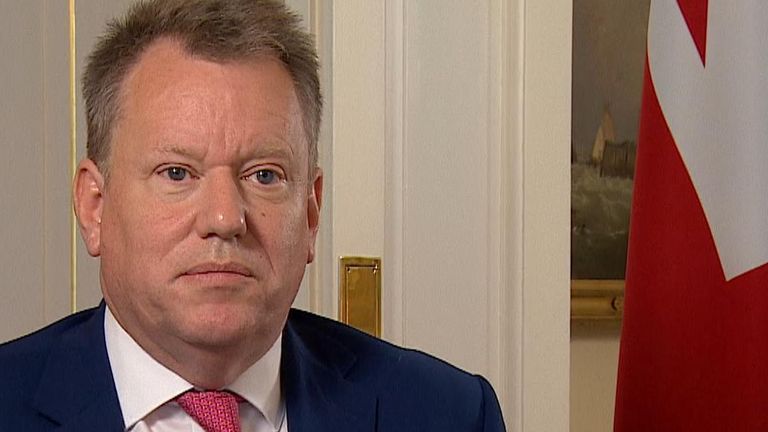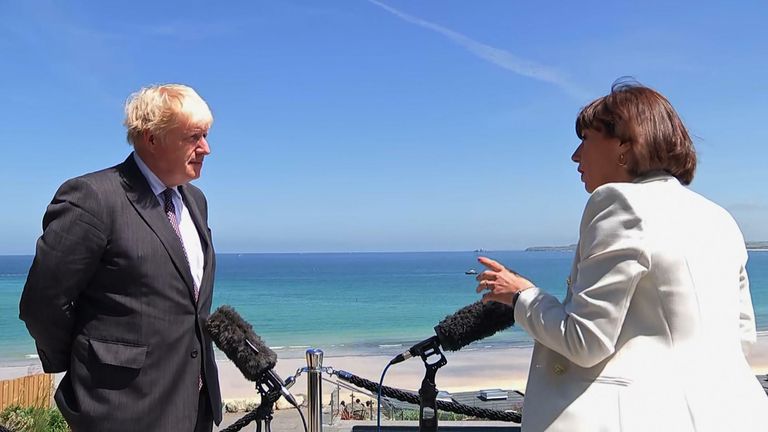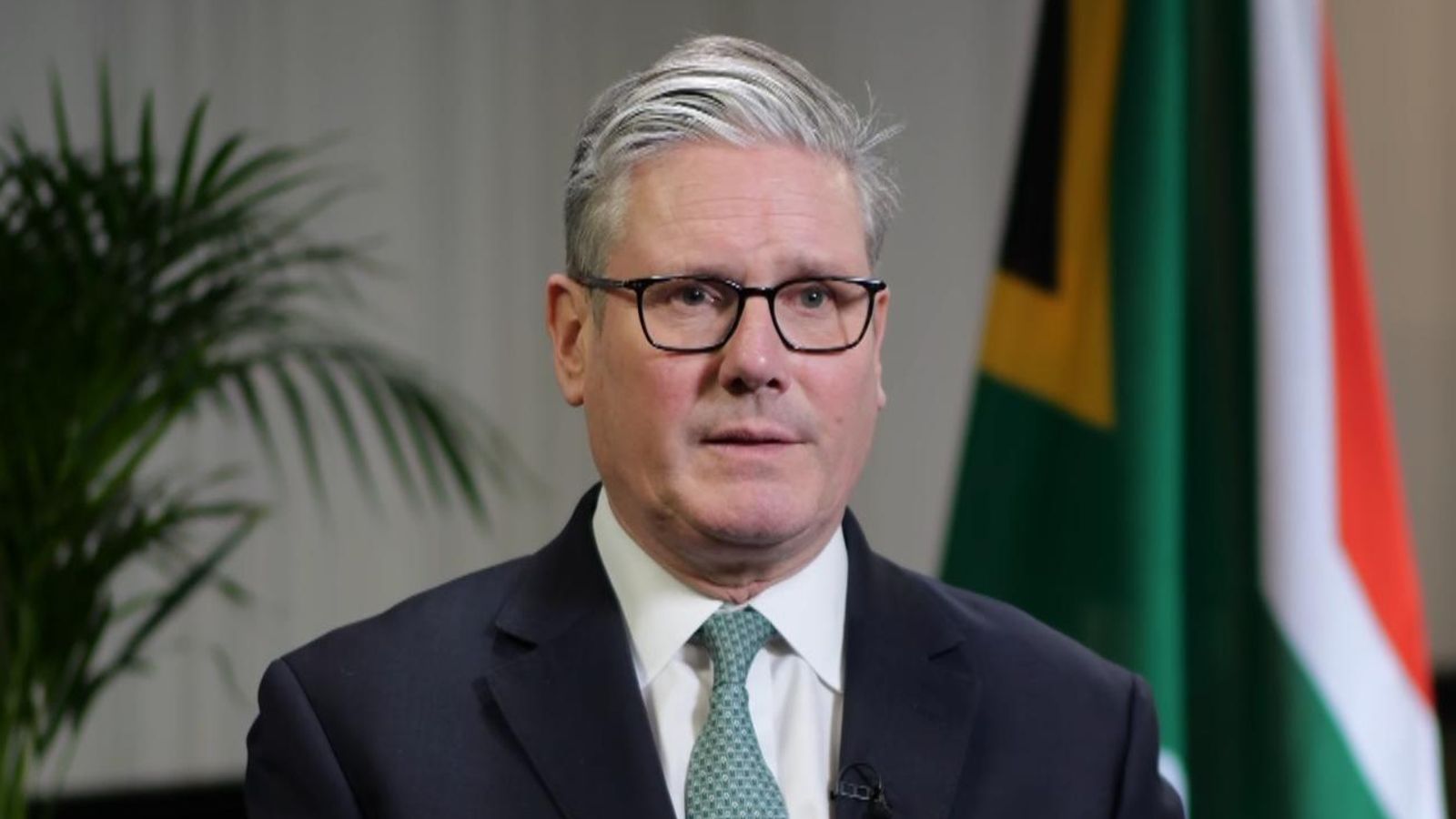The so-called “sausage war” trade dispute between the UK and EU was “not even handbags at dawn”, MPs have been told.
Aodhan Connolly from the NI Retail Consortium told the Northern Ireland Affairs Committee that the row over chilled meats was “peripheral” and that bigger problems for traders are coming.
The committee heard from a number of business, retail and manufacturing figures during a hearing on the impact of the Northern Ireland Protocol.
The Protocol is a key part of the Brexit deal struck between London and Brussels and is designed to avoid a hard border on the island of Ireland.
As part of the arrangement, Northern Ireland remains under some EU rules and there are checks on goods entering Northern Ireland from Great Britain.
Shipments of chilled meats from third countries into the EU’s single market, which Northern Ireland effectively remains a part of, are banned.
A grace period allowing them to continue to be moved to Northern Ireland has been extended until the end of September, but an agreement on a long-term solution has not been forthcoming.
Mr Connolly told the committee: “On chilled meats, if people think that is what a trade war is they are really going to be surprised when there is an actual war. That was not a trade war, that wasn’t even a trade handbags at dawn.
“It is an emotive issue, but in trade terms it is a peripheral issue.”
He added: “There are some real concerns and the last couple of weeks we have been having lots of meetings with our grocery members on what is coming down the tracks. We are heading towards a perfect storm in October when we will need export health certificates.
“We simply don’t know if there is going to be the veterinary capacity, we simply don’t know what the cost implications of that will be.
“There are lots of things coming at the one time.”
Mr Connolly said that in October there would be an increase in the amount of admin needed for moving from Great Britain to Northern Ireland, as well as the commencement of border controls on EU products entering Great Britain.
“For the consumer in GB, they won’t really have felt any of this because those controls have not come in yet but they’ll be phased in from October,” he said.
“We’re at the end of those supply chains so there could be a knock-on there.”
Victor Chestnutt, director of the Ulster Farmers’ Union, told MPs the chilled meats row was a “red herring”.
He said: “There has been this unwillingness politically for Europe and the UK to engage on small issues that are very real on farms, and community tension therefore in NI is rising.
“We did see some flexibilities, one on chilled meats, which I would say was a red herring. We are an exporting region, we can make all the sausages we need in NI. Yes, the choice is good for consumers, but that was a red herring really.”
The committee was also told that one in five manufacturing companies in Northern Ireland have reported that companies elsewhere in the UK are unwilling to continue to supply them with goods since the Protocol came into effect.
Stephen Kelly, chief executive of Manufacturing NI, said: “What we know is that 77% of manufacturers said that the first three months, following the end of the transition period, had a negative impact upon their business.
“In terms of GB business, 36% said that they were currently struggling with the new processes and they believed that that struggle would persist. One third said it had a negative impact on their sales to GB, in both directions.
“Most concerning was that one in five, 20%, said that their UK suppliers were simply unwilling to continue to supply to Northern Ireland.”
Mr Kelly added: “When we look at the EU side, 46% of EU suppliers are reported to be either unaware, unprepared or unwilling to supply to Northern Ireland.
“The challenge that is identified there is that despite reports leading up to the end of 2020 that the EU was ready for no deal, there hasn’t been that education programme in the EU that explains to suppliers and customers that goods destined for Northern Ireland are meant to freely flow.”
MPs debated the Protocol in the Commons on Thursday, approving a motion that said “flexibility” in its application is “in the mutual interests” of both parties.
Cabinet Office minister Penny Mordaunt said Brussels must work with the UK to ease burdens on Northern Ireland rather than “prioritise” its single market.
She said a “seriously unbalanced” situation is unfolding because of how the Protocol is operating.
Ms Mordaunt told the Commons that the UK is “ready” to develop a new approach and will be setting out its proposals shortly.
Democratic Unionist Party MP Sammy Wilson said the Protocol could become a “threat to Brexit” if it continues.
“It represents a bridgehead which the EU still has on the United Kingdom, a salient from which it will continue to attack our sovereignty and try and claw back the influence it lost when this country decided to leave the EU,” the party’s Brexit spokesman said.
But SDLP MP Claire Hanna said the two sides should “work through the challenges” posed by the Protocol rather than binning it.
The Belfast South MP said: “Having a hard Brexit and frictionless trade are regrettably not both possible and they never have been, and it is dishonest to pretend otherwise.
“All that remains to do is calmly, as adults and leaders and good neighbours, work through the challenges that it has generated, streamlining processes where possible and finding work arounds where not.”














